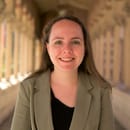The images of apocalyptic skies and wildfires raging across California are harrowing, yet these wildfires shouldn’t come as a surprise. These disasters are in line with yearly and decade-long climate science models that tell us that this devastation will be more intense in the future. Yet the fossil-fuel-funded politicians who can no longer deny that climate change is happening are not so eager to accept that humans are the cause, let alone take action. We are still emitting 92% as much carbon as before the pandemic, a dismal and temporary reduction.
While here in the United States our national response to COVID-19 wasn’t quick enough, the cultural shift in response to COVID-19 was swift compared to climate change action, considering scientists at Exxon have known for almost forty years what the impacts of burning fossil fuels would be. While COVID-19 has a death rate of 14 per 100,000 people, climate change could reach this death rate by 2060 and have a death rate five times more deadly by 2100.
While we rightly made drastic changes like shifting to virtual learning due to the infectious nature of COVID-19, this sense of urgency is lost when it comes to the deadly impacts of climate change. Climate change is treated as a problem of the distant future even as states like California burn, the Atlantic hurricane season sets records, and climate change itself alters how species relate to each other, setting the stage for future novel diseases. We missed our opportunity to prevent climate change, but if we responded with the urgency shown by the COVID-19 response we could prevent the worst impacts of climate change while still economically feasible.
Just like a pandemic, the world is in this together. We need to make sure that poorer nations that have contributed the least to climate change, but will experience its worst impacts, are included in science-backed solutions. We should have started shifting from a fossil fuel society to a clean energy society yesterday, a week ago, a year ago. We should have started decades ago when fossil fuel companies ignored deadly warnings from their own scientists for profit and power. But we can still start now as part of our new normal.



